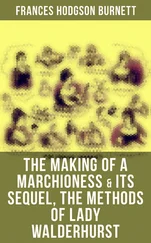Of course, there are always some children who find it more difficult to integrate, even though often they may very much want to belong. In a high-achieving intellectual environment (where you test for many things but not emotional intelligence) there are more pupils than you might think who, despite their prodigious gifts, find the social contact with others difficult. And there are always a few who stubbornly resist, at odds with their school, rejecting its values and authority. They will not allow their individuality to be diluted, to be lured into some institutional conformity and suffer agency capture! They would be the grit in the oyster. But over time, a little pearl would often secrete itself around these too. For on the whole, especially when joining a new school at age eleven, children don’t want to be different or to stand out; they want to be accepted, and the first few weeks are all about fitting in and becoming part of the tribe. Pupils learn to belong by watching, adapting and through myriad small adjustments that often go under adult radar. Their ‘pack’ is their form, or tutor group, and this is the unit in which they first find their feet.
The importance of helping new pupils feel secure and grounded in their year group was a priority for me as a head because of something that happened to me, no doubt from the best of intentions, when at school in my first senior school year.
I had joined my senior school, Sunny Hill (known more formally as Bruton School for Girls), set on a rolling green hilltop outside Bruton, Somerset, in 1968. Aged ten, I was placed in Miss Reed’s first-form class. The youngest children in the school, we were taught in a long wooden hut with a gabled roof and its own small garden, rickety windows and walls pockmarked by drawing pins where our pictures, stories and poems were proudly displayed. Miss Reed, a tiny person with the bright brown eyes of a mouse, had the appearance of someone who spent her weekends taking bracing walks along cliff paths. That first term I quickly made friends and felt both absorbed and stimulated by everything we did; it was one of the happiest of my school days. But then everything changed.
One morning at the start of the second term, Miss Reed called me up to her desk. ‘I’ve something to tell you, Clarissa,’ she said, eyes twinkling. ‘You’re being moved up a year. The work will be more stretching. And it’s also that you’re more mature than the others …’ Mature! What was that? My world had just fallen apart. When was I to start? Well, there was no time like the present: it would be at once. Miserably, I said goodbye to my friends and was escorted down unfamiliar corridors to the alien, too-bright world of my new form room, where at the desk next to mine a sturdy girl with a pale-brown fringe and sensible glasses called Margaret Morgan had been told to look after me. Margaret was politely kind, but after a few days she admitted one break-time how she was missing spending time with her best friend, Cecily Krasker, and gratefully went off to find her. Sitting alone on a wall, I hoped I didn’t look too conspicuous and longed for the bell to ring so that I could return to the anonymity of the class.
Untethered from the lovely security of Miss Reed’s class and my friends, I was lost. I dreaded the long lunch hours where I would drift around, trying to attach myself to one group of girls or another. They were kind enough, but nobody really wanted me: friendships had formed a year ago and this new, younger girl was an awkward thing. I felt childish next to these impossibly mature thirteen-year-olds who had started to wear bras and have periods. Once only interested in the fascinating world of discovery that was the first-form classroom, now I was ashamed of my failure to reach these very different milestones. At last, after much hinting, my mother did allow me to have a bra and there was a mortifying trip to the local outfitters, where she and the well-padded assistant exchanged amused glances as an infinitesimally small garment was selected. We bought two, neatly packed in cardboard boxes, like clothing for a doll. One on, one in the wash, the assistant said efficiently. The anxiously awaited arrival of my periods – a rite of passage in the lives of all young girls – came to me long after it had ceased to be a newsworthy matter to our class generally, accompanied by a silent relief that, alone in the bathroom at home, I shared with no one.
Children adapt and are often more resilient than we expect. I eventually settled in to the new class and by the following year, had made friends and was starting to enjoy academic work again. From that unnecessarily rocky start I went on to have six more happy years at the school. In my penultimate year, unlooked-for success was secured as a result of a chance meeting between my grandmother and the headmistress in a local tea shop. Miss Cumberlege (I will come back to her later), seeking no doubt to make polite conversation, said to my grandmother: ‘Clarissa seems to be doing very well at school …’ to which my grandmother replied magnificently: ‘Doing well? Clarissa could run an Empire!’ No doubt on the strength of this I was soon appointed one of the four head girls. So all ended well, but that early experience of being moved up always seemed a pointless emotional setback, never more so than when I emerged at the other end of the school having taken my A levels at barely seventeen, too young to go to university. I spent an unremarkable gap year working in our local pub and interrailing around Europe. Perhaps I was just doing a bit more growing up: it felt as if I’d been forced through things too quickly.
Whoever we are, our experience of school informs our values and our adult view of the world. Having been very young in the year, I’m now particularly alive to that predicament in school children and how it affects them in ways that may go undetected by the adult radar. Children live their school lives amongst their peers and experience much that the adults around them, however well intentioned, will never know (one reason why bullying and unkindness can be so hard to detect). Age matters hugely in early adolescence: however intellectually advanced a pupil is, if her (or his) emotional and physical development are not aligned with that of peers, especially around puberty, then being fast-tracked through the system may well do more harm than good. Parents can be impatient for their children to achieve academic milestones, but to what end? Of course they need to be stimulated but this can happen in so many lateral ways; they also need time to grow and be themselves, to develop at their own pace amongst friends and peers with whom they feel at home. This is what creates confidence and provides the secure foundation for their self-esteem throughout life.
Even where things appear to go smoothly from the outside not every child settles into a new school easily. As the one-time head of a boarding school, I know something about homesickness, that most physical feeling, creating a dull ache in the middle of you as if there is a gap there, exactly the shape that home and all that is familiar should be. It can be felt by children in day schools just as fiercely – a school day when you feel left out or lonely or overwhelmed can seem to last forever. But for many, just like my own period of unhappiness, it almost always passes. At Queenswood I can recall only one girl out of the many hundreds of boarders whose homesickness seemed to have no cure, and this had more to do with anxieties about an unstable home situation than with being at school. While not all children will necessarily adapt to and enjoy boarding, parents who are sympathetic listeners while staying positive about the new experience and waiting for time to do its work are likely to see their child settle happily. I’ve often smiled to myself on hearing older girls recalling their own difficult initial experiences, as a way of helping younger pupils through those early weeks. Self-possessed young women now, and with the wisdom of experience, they had the air of having left such worries far behind.
Читать дальше












